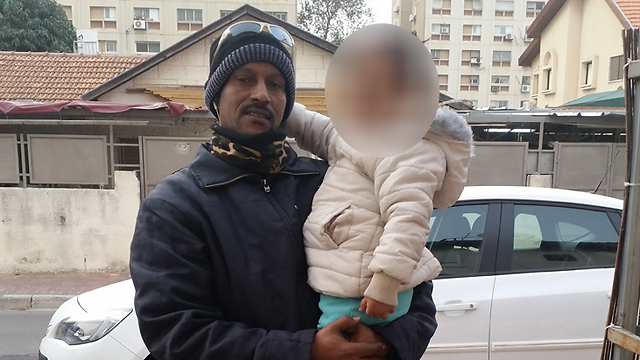
As tens of thousands of parents registered their children in kindergartens for the next school year, a number of asylum seekers in Israel attempting to do the same were barred from doing so, encountering systematic policies of discrimination enforced by a number of local authorities.
According to the Israel Compulsory Education Law, all children, regardless of their parents' migration status (whether legal or not, refugees or infiltrators), are entitled and required to attend a recognized educational institution. The law applies to all children living in Israel, no matter their status in the Population Registry. The regulation also applies to children of migrant workers residing in Israel and at the age of compulsory school attendance, regardless of the formal status of their parents.
The Education Ministry, local authorities, and school principals are required to provide full education to all children according to their needs, including, for example, psychological services, free education for children ages three and older, and more.
Despite the unequivocal language of the law, dozens of asylum seekers recently contacted ASSAF (Aid Organization for Refugees and Asylum Seekers in Israel) after they were prevented from enrolling their children to kindergartens, encountering statements such as "this isn’t the right place for you," or "go to Tel Aviv".
ASSAF said it received several calls from families living in Yavne who were inquiring about the issue, while the organization's volunteers reported that a number of such residents left the city and moved to Tel Aviv due to the difficulties they encountered in their attempts to register their children.
Similar calls were made by asylum seekers living in Kiryat Malachi, Bat Yam, Petah Tikva, Bnei Brak and Tel Aviv.
In some of the cases, the parents' request to enroll their children was rejected after they were asked to provide documents they could not obtain – an identity card, a resident visa valid for up to one year, or a residential lease signed by the parents (many asylum seeker families share an apartment with other asylum seekers, but at times only one person is signed on the lease).
Among those who contacted ASSAF was Habtom Abraha, 33, an Eritrean asylum seeker who wanted to register his three-year-old daughter Bat El to a kindergarten in Yavne, where he lives. "They told me they wouldn't accept my daughter, they said 'you don't deserve to be here, go to Tel Aviv'," he recounted in a conversation with Ynet. "The secretaries sent me from place to place, told me 'come back tomorrow, we'll call you', but they never did, and when I tried to check with them regarding the issue, they told me there was no decision."
Following the claims made by Abraha and other asylum seekers, the aid organization's management contacted the Yavne municipality, which said that the issue was being taken care of. However, when Abraha attempted to register his daughter once more, he was again rejected. His daughter was finally admitted to the local kindergarten after the Yavne mayor received a direct appeal from the organization – but only on condition that Abraha proves that he holds a one-year resident permit. Abraha's explanations that he had been living in Israel for the past five years, and that because of Interior Ministry procedures permits could not be renewed for two months – did not make a difference.
A source in the education system confirmed the claims, and explained that: "The three weeks allotted for registration for kindergartens in the months of January and February pose a difficulty for Israeli parents, who register online, but for asylum seekers the process is even more complicated."
According to him, "asylum seekers do not know what will happen to them tomorrow, so they encounter many difficulties in registering their children for school when it's scheduled to begin in eight months."
It is important to note that the Israel Compulsory Education Law states that children at the age of five and older are required to attend an educational institution - meaning the education system is required to admit such students to schools.
More than 50,000 Africans - mainly Sudanese and Eritreans - have crossed into Israel surreptitiously through a once-porous, and now fenced, Egyptian border in the past eight years.
Many say they seek asylum from war-torn homelands, but Israel dismisses most as illegal job seekers - although some have been granted limited visas.
Since July 2009, only four requests for asylum have been recognized by Israel out of 5,573 filed by Sudanese and Eritrean nationals. The data was revealed as part as a High Court petition against the Infiltration Protection Act – which the court already shot down twice.
Moreover, the petition revealed that out of 3,165 petitions filed by Sudanese nationals, at least 2,184 have yet to be answered.
















